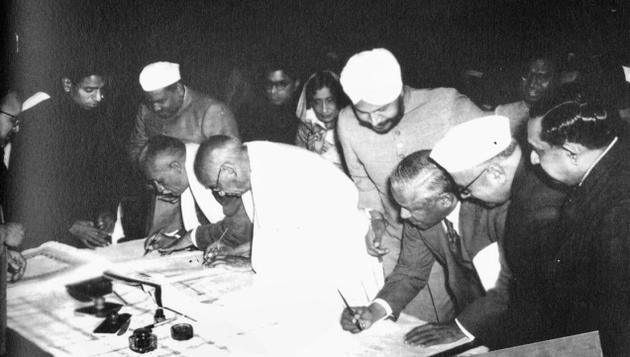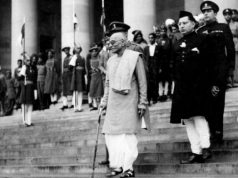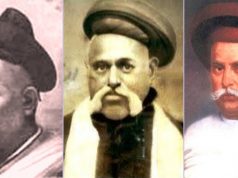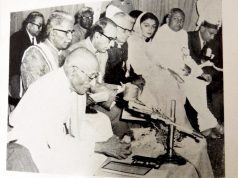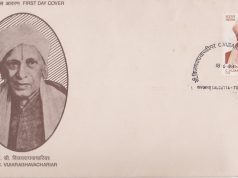As India celebrated its 66th Republic day earlier this week, we decided to post C Rajagopalachari’s views on the Indian Constitution. The post contains excerpts from speeches delivered in 1972.
A Motor Car with no Brake
I have been constantly reiterating the importance of defending the Constitution. This is because the Constitution guarantees the following: first, the complete protection of minority communities in the practice of their religions and their equality with the majority community in all secular rights and privileges; secondly, the complete protection of citizens in the enjoyment of their properties inherited or otherwise acquired legally and a guarantee that if the State desires to acquire any part of them, the State should give just and adequate compensation to make up for the loss; thirdly, the need for any acquisition and the adequacy of the compensation should be subject to judicial examination and the award of the courts should be fully respected. It is these guarantees inscribed in the Constitution that save the citizens from dictatorship and serfdom.
If therefore, the Constitution should be saved from being sabotaged in these respects, a party pledged to these guarantees and to resist totalitarian rule is absolutely necessary. The people may elect anyone they choose to rule over the affairs of the country subject to the guarantees briefly mentioned above. A party dedicated to defend these guarantees is as necessary as it is necessary to have a parliament and leaders dedicated to good government. The independence of the judiciary and the authority of the Supreme Court should not be interfered with directly or indirectly. These axioms of good government and democracy should be explained clearly to the people and they should be warned against being misled into agreeing to a sabotage of the Constitution.
The economic policies of the Government should be so framed as to lead to social justice which is not impossible, if party politics is not allowed to interfere with genuine economic reform and steps are taken to maintain and improve respect for moral values. This is the fundamental basis for any good government. Leaders should be men and women of the highest character and competence. They should lead and not be led by those whose votes may, by numbers, give power and authority over the citizens without considering what is good for the nation in the long run. A solid group of people, who guard the Constitution and the rights of the people, the rights of the majority as well as of the minorities, is as important as a Prime Minister and President are necessary. Without such a party it would be like a beautiful motor car without a brake.
The notion that the justification for the existence of a party is only that it can be an alternative government if it secures a sufficient number of votes and that otherwise it may be dissolved and extinguish itself is wholly erroneous. A party of those who are dedicated to defend the core of good democracy is even more important than those who run governments according to the requirements of change in times. Politics is not merely a competition between groups for ths acquisition of power. The fundamental articles with which the Swatantra Party was founded must be read over and over again by good men and women in the country and must be explained to the less informed section of the community. The defence of the Constitution is . not less important than the defence of the country against foreign aggression.
(May 13, 1972)
****
What the people of India require is good government and not merely a ‘stable’ government. The stress ought to be on good government which does not seek to make serfs of citizens. The stress should not be on stability. A regime bent on doing away with the fundamental rights of citizens is not good government. Authoritarian dictatorship can perpetuate itself without other assistance. What should be done is not to make it stable, but to bring it to public condemnation. A free way of life is not possible under majority oppression and intimidation. The illusion that ‘stability’ by itself is good must be dispelled. This reiteration of mine is not a redundant reiteration.
(August 19, 1972)
****
It is treason for one to assist a foreign aggressor. It amounts no less to treason to assist the replacement of democracy by dictatorship. Freedom is a husk without grain if we get our military forces to defend the country against the invasion of a foreign Power but we permit a dictator of our own to establish totalitarian rule, depriving the citizens of any way of resistance to those who have seized authority over the people. This is the reason why certain fundamental rights are inscribed in the Constitution framed by the fathers of our freedom. They had foresight enough to see that power corrupts people and in particular, absolute power absolutely corrupts.
(1972)
(We have previously posted a few pieces from the Indian Liberal Archives on the Indian Constitution. These can be accessed here —
C Rajagopalachari: ‘The Keystone of the Constitution’
Nani Palkhivala: ‘Constitution and the Common Man’
To access the original piece, click here. Visit indianliberals.in for more works by Indian Liberals dating back to the 19th Century.)
Post Disclaimer
The opinions expressed in this essay are those of the authors. They do not purport to reflect the opinions or views of CCS.

